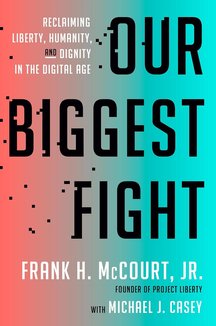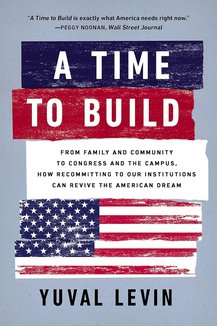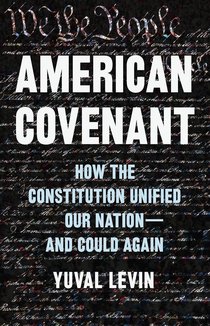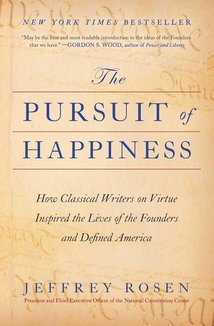Recommended Books

Our Biggest Fight: Reclaiming Liberty, Humanity, and Dignity in the Digital Age
Authors:
Frank H. McCourt Jr.
,
Michael J. Casey
ISBN 13:
978-0593728512
NATIONAL BESTSELLER • The internet as we know it is broken. Here’s how we can seize back control of our lives from the corporate algorithms and create a better internet—before it’s too late. “In the spirit of Thomas Paine’s Revolution-era Common Sense , this manifesto challenges us to create new digital architectures to safeguard democracy.”—Walter Isaacson, #1 New York Times bestselling author of Elon Musk It was once a utopian dream. But today’s internet, despite its conveniences and connectivity, is the primary cause of a pervasive unease that has taken hold in the U.S. and other democratic societies. It’s why youth suicide rates are rising, why politics has become toxic, and why our most important institutions are faltering. Information is the lifeblood of any society, and our current system for distributing it is corrupted at its heart. Everything comes down to our ability to communicate openly and trustfully with each other. But, thanks to the dominant digital platforms and the ways they distort human behavior, we have lost that ability—while, at the same time, we’ve been robbed of the data that is rightfully ours. The roots of this crisis, argue Frank McCourt and Michael Casey, lie in the prevailing order of the internet. In plain but forceful language, the authors—a civic entrepreneur and an acclaimed journalist—show how a centralized system controlled by a small group of for-profit entities has set this catastrophe in motion and eroded our personhood. And then they describe a groundbreaking solution to reclaim it: rather than superficial, patchwork regulations, we must reimagine the very architecture of the internet. The resulting “third-generation internet” would replace the status quo with a new model marked by digital property rights, autonomy, and ownership. Inspired by historical calls to action like Thomas Paine’s Common Sense , Our Biggest Fight argues that we must act now to embed the core values of a free, democratic society in the internet of tomorrow. Do it right and we will finally, properly, unlock its immense potential.

A Time to Build: From Family and Community to Congress and the Campus, How Recommitting to Our Institutions Can Revive the American Dream
Author:
Yuval Levin
ISBN 13:
978-1541604414
“A moving call to recommit to the great project of our common life.” ( Wall Street Journal ) Americans are living through a social crisis. Our politics are polarized and bitterly divided. Culture wars rage on campuses, social media, and sometimes in the streets and public squares. And for too many Americans, alienation can descend into despair, weakening families and communities. Left and right alike have responded with anger at our institutions, and use only metaphors of destruction to describe the path forward: cancelling, defunding, draining the swamp. But, as Yuval Levin argues, this is a misguided prescription, rooted in a defective diagnosis. The social crisis we confront is defined not by an oppressive presence but by a debilitating absence of the forces that unite us and militate against alienation. In A Time to Build , now updated with a new epilogue, Levin argues that today is not a time to tear down, but rather to build and rebuild by committing ourselves to the institutions around us. From the military to churches, from families to schools, these institutions provide the forms and structures we need to be free. By taking concrete steps to help them be more trustworthy, we can renew the ties that bind Americans to one another.

American Covenant: How the Constitution Unified Our Nation―and Could Again
Author:
Yuval Levin
ISBN 13:
978-0465040742
“The most important voice in the political culture” (Ben Shapiro) reveals the Constitution’s remarkable power to repair our broken civic culture, rescue our malfunctioning politics, and unify a fractious America Common ground is hard to find in today’s politics. In a society teeming with irreconcilable political perspectives, many people have grown frustrated under a system of government that constantly demands compromise. More and more on both the right and the left have come to blame the Constitution for the resulting discord. But the Constitution is not the problem we face; it is the solution. Blending engaging history with lucid analysis, conservative scholar Yuval Levin’s American Covenant recovers the Constitution’s true genius and reveals how it charts a path to repairing America’s fault lines. Uncovering the framers’ sophisticated grasp of political division, Levin showcases the Constitution’s exceptional power to facilitate constructive disagreement, negotiate resolutions to disputes, and forge unity in a fractured society. Clear-eyed about the ways that contemporary politics have malfunctioned, Levin also offers practical solutions for reforming those aspects of the constitutional order that have gone awry. Hopeful, insightful, and rooted in the best of our political tradition, American Covenant celebrates the Constitution’s remarkable power to bind together a diverse society, reassuring us that a less divided future is within our grasp.

The Pursuit of Happiness: How Classical Writers on Virtue Inspired the Lives of the Founders and Defined America
Author:
Jeffrey Rosen
ISBN 13:
978-1668002483
A New York Times bestseller and an “enriching…brilliant” (David W. Blight, Pulitzer Prize–winning author of Frederick Douglass ) examination of what “the pursuit of happiness” meant to our nation’s Founders and how that famous phrase defined their lives and became the foundation of our democracy. The Declaration of Independence identified “the pursuit of happiness” as one of our unalienable rights, along with life and liberty. Jeffrey Rosen, the president of the National Constitution Center, profiles six of the most influential founders—Benjamin Franklin, George Washington, John Adams, Thomas Jefferson, James Madison, and Alexander Hamilton—to show what pursuing happiness meant in their lives, and to give us the “best and most readable introduction to the ideas of the Founders that we have” (Gordon Wood, author of Power and Liberty ). By reading the classical Greek and Roman moral philosophers who inspired the Founders, Rosen shows us how they understood the pursuit of happiness as a quest for being good, not feeling good—the pursuit of lifelong virtue, not short-term pleasure. Among those virtues were the habits of industry, temperance, moderation, and sincerity, which the Founders viewed as part of a daily struggle for self-improvement, character development, and calm self-mastery. They believed that political self-government required personal self-government. For all six Founders, the pursuit of virtue was incompatible with enslavement of African Americans, although the Virginians betrayed their own principles. “Immensely readable and thoughtful” (Ken Burns), The Pursuit of Happiness is more than an elucidation of the Declaration’s famous phrase; it is a revelatory journey into the minds of the Founders, and a deep, rich, and fresh understanding of the foundation of our democracy.